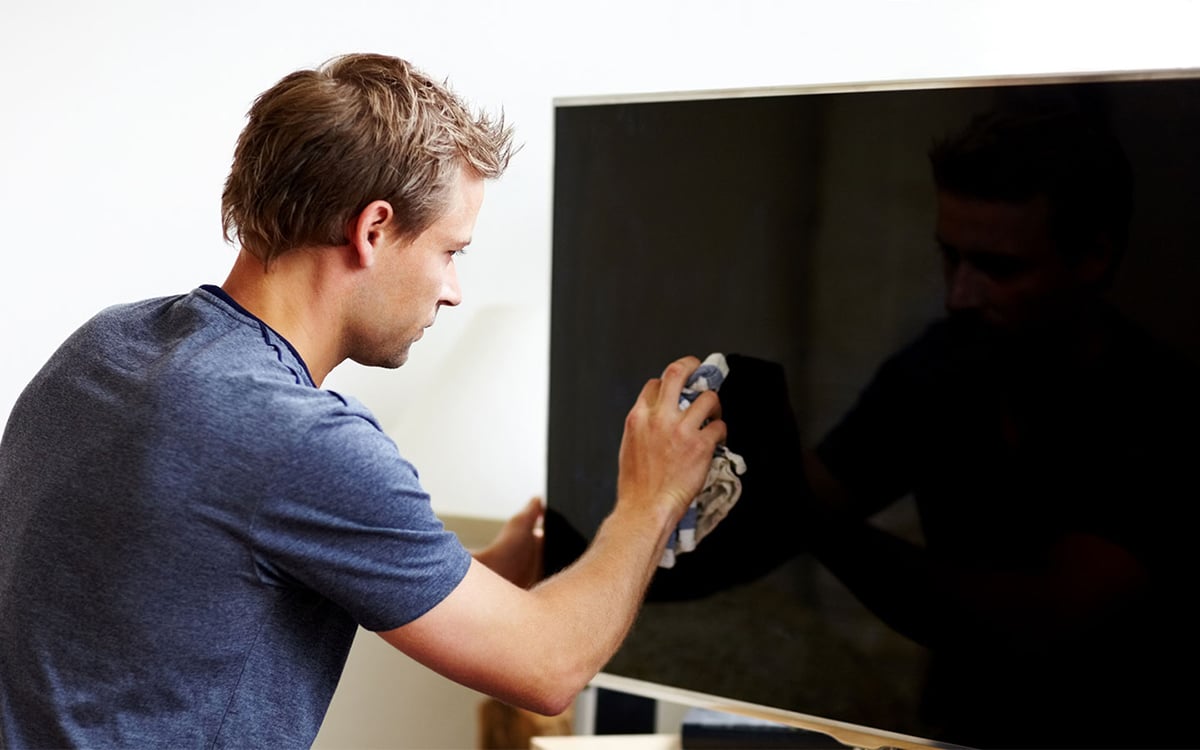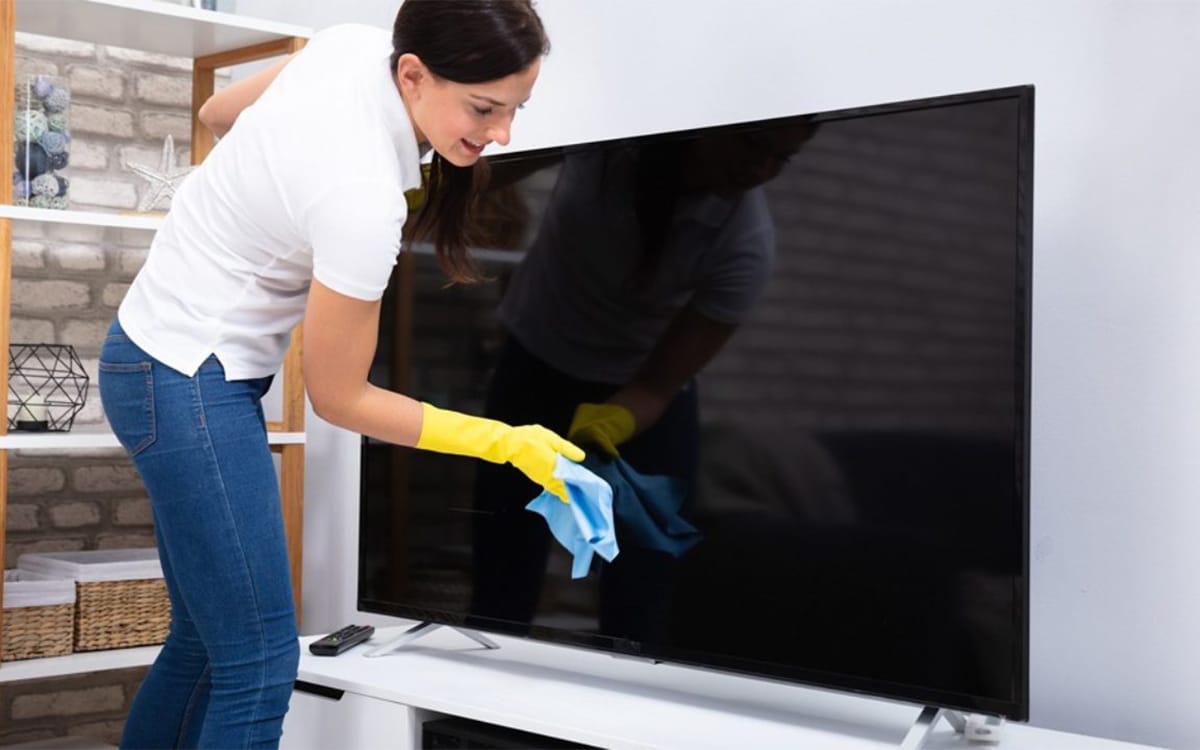However, TVs are often incredibly delicate, so you’ll want to make sure to approach the task with care, lest you end up damaging your screen beyond repair. Luckily, cleaning your TV needn’t involve an exhaustive list of materials. All you need are a few basic essentials, some of which you may already have lying around!
What You Need To Get Started:
- Microfibre Cloth – designed to be extra gentle and great at removing dust & dirt
- Screen Cleaning Solution – protects your screen as you wipe and wont leave any annoying streaks
- A Dry Spare Cloth – helps dry areas with leftover residue for a finished look
How To Clean Your TV Screen
Step 1 – Start by turning off your TV and dusting the screen with the microfibre cloth. Use a light touch to prevent damage.
Step 2 – Use your special cleaning solution to clean away stubborn marks. Spray onto your cloth before wiping the screen.
Step 3 – Dab away any damp spots on the screen with a dry cloth. Then leave the TV to air dry for ten minutes before turning it on.

Should You Unplug Your TV Before Cleaning It?
Absolutely. Before you set about cleaning your TV you should always make an effort to turn it off and unplug it from the wall. This not only keeps your television safe, but also keep you safe from any accidental shocks.
Is It Okay To Spray Cleaning Solution Directly On Your TV?
We would totally recommend against spraying your TV cleaning solution directly onto your TV. Spraying directly onto the TV runs the risk of creatingwater droplets that escape into the small corners of the TV. These droplets can then enter the interior of your TV and wreak havoc on the health of your TV.
Instead of spraying cleaning solutions directly onto your TV, you should use a cloth as a medium. Simply spray the solution onto the cloth, and then wipe using the cloth.
Why Should You Leave Your TV After Cleaning It?
If you’ve just cleaned your TV with a specialised solution, you should allow it to rest for at least ten minutes before turning it back on. This allows any lingering moisture to air dry naturally. In turn, this keeps your TV safe.
Mistakes You Should Avoid When Cleaning Your TV
- Don’t apply too much pressure when wiping your TV. Excessive force can put the delicate layers of the screen at risk.
- Avoid using harsh chemicals and abrasive materials to clean your TV. You should only use solutions specially formulated for screens.
- Don’t leave your TV plugged in. For your safety, it’s best to ensure the TV is turned off completely when cleaning.
- Don’t spray cleaning solutions directly onto the screen. Spray it onto your cloth first before wiping!
- Don’t wipe erratically. You should wipe away smudges and other marks using slow circular motions. This keeps dirty marks from spreading.
- Don’t forget the nooks and crannies of your TV. Be sure to dust around the vents and any surface on the rear of the TV. This keeps dust from entering the internal components.
How Often Should You Clean Your TV?
We’d recommend cleaning your TV at least once a week. This helps to keep it free of dust, and also keeps dirt and grime from gathering and putting your TV at risk.
You should only really need your basic microfibre cloth to get it done. Just give the screen a gentle once-over, and then check the hidden nooks and crannies, especially towards the back of your TV.
Giving your TV a wipe once a week helps to cut down on time spent on the task, as you won’t have to worry about carrying out a deep clean!
Why Should You Clean Your TV Often?
It’s important to keep your TV clean because it ensures you always get the best view. Smudges, fingerprints and other dirty marks can impact your TV’s ability to project an image, resulting in a diminished viewing experience. When viewing your TV at an angle, dirty marks will also be highlighted by ambient light, which is incredibly distracting.
More than being a visual annoyance, dirt and dust can also pose a risk to your TV. Dust and dirt on the back of your TV, in particular, can easily enter the interior of your TV, and put internal components at risk. Many TV screens feature anti-reflective layers, which can be damaged by certain chemicals carried on our fingers.





